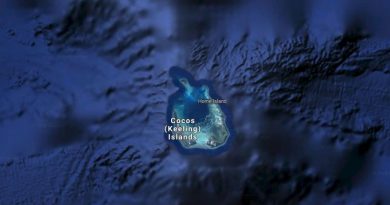United Kingdom to Call for 30% of Seas to Be Protected by 2030

At the UN General Assembly in New York tomorrow, UK’s Environment Minister Thérèse Coffey will urge other countries to back Britain’s call to designate 30 per cent of the world’s oceans as Marine Protected Areas (MPAs) by 2030 in a bid to reverse the damage being done by overfishing, plastic pollution and climate change.
“It is only by working with our counterparts internationally that we can truly bring about global change,” Coffey said in a statement on yesterday. “I am delighted to be in New York this week to look at how we can build on the progress made on marine protection and protect the world’s oceans for future generations.”
This move will make the United Kingdom the first major economy to officially recognize the importance of ocean protection at this large scale. UN Patron of the Oceans and endurance swimmer Lewis Pugh has called it “a landmark decision”.
BREAKING NEWS: Today the UK has decided to forge ahead with our call to protect 30% of the world’s oceans by 2030. It’s an historic moment. https://t.co/OfvD3J6gZi 1/8 pic.twitter.com/fl9uUfTWrk
— Lewis Pugh (@LewisPugh) September 24, 2018
Pugh continues, “It took my breath away. If this is supported by other nations and followed through, it will be the most important moment for ocean conservation in history.”
The announcement follows Lewis Pugh’s recent 328-mile swim along the length of the English Channel. During The Long Swim he called for more ambitious ocean protection targets, specifically that 30% of the oceans should be fully protected by 2030.“The pain of my 49 days swim has quickly disappeared,” Pugh added.
“On paper, the UK has strong credentials in marine conservation,” says Pugh. “While we welcome this landmark decision, we need to focus not only on the number but the nature of the protection. Fully protected MPAs are what it takes for these oceans to fully recover, without which they are like frames with no pictures.”
The current target, agreed by parties to the United Nations Convention on Biological Diversity in 2010, is to protect at least 10 per cent of coastal and marine areas by 2020. However, to date less than 4 per cent of the oceans are formally protected. WWF says that the vast majority of existing marine parks and reserves are either poorly managed or not looked after at all.
Erik Solheim, the head of UN Environment, welcoming the British initiative said, “The powerful call to scale up global marine protection, made by the United Kingdom today, should serve as a guiding light for Member States around the world. Marine protection should be the rule, not the exception.”
Oceans occupy 97% of the habitable space on the planet, meaning that healthy oceans are critical to all life on Earth. At the #UNGA , Britain will call on the world to protect 30% of our #oceans by 2030, a trebling of the current target!https://t.co/NjCCHTzyZv #ProtectedPlanet pic.twitter.com/yhrwMqo6L0
— UN Environment (@UNEnvironment) September 25, 2018
“Particularly for the most vulnerable, high-traffic and resource-rich marine habitats, the time for effective management and action on our oceans and seas is now,” Solheim added.
Marine Protected Areas (MPA) will give people and wildlife more time to adapt to the rapid changes already taking place. The status of which is being negatively impacted by climate change, industrial fishing and overfishing, coastal development, deep sea mining, toxic waste dumping, acidification and a toxic tide of plastic pollution.




